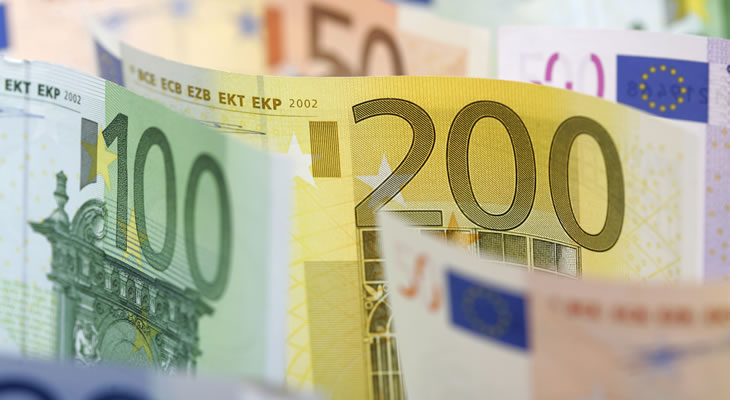Update; January’s retail sales figures ultimately disappointed to the downside, showing an unexpected contraction of -0.3% on the month. This undermined confidence in the resilience of the domestic consumer, and the wider economy by extension. As a result the Pound slumped sharply across the board.
Original article continues below…
Confidence in the Pound remained generally limited in the wake of the weaker-than-expected UK average weekly earnings figures for the three months to December.
This weakening in wage growth indicated that consumers are likely to experience an increasing squeeze in the coming months as inflation continues accelerating.
As a result the Pound to Euro exchange rate trended lower, with concerns mounting over the potential resilience of the domestic economy.
Sterling could diminish further in response to the UK retail sales figures for January if spending shows signs of having weakened already.
Even so, the month-on-month figure is forecast to have rebounded by a respectable 0.7%, reversing some of December’s sharp -2.0% contraction.
Any signs of resilient sentiment could boost the Pound ahead of the weekend, even though rising price pressures are set to increasingly erode the spending power of consumers.
Developments relating to the passage of the government’s Article 50 bill through Parliament could encourage greater investor reticence in the longer term.
If the House of Lords appears likely to amend the bill, ensuring that it would face another debate in the Commons, GBP exchange rates could come under further pressure.
While markets would welcome any limits to the government’s hard-line rhetoric this could jeopardise Theresa May’s Brexit timeline.
As delays could increase the uncertainty surrounding the future of the UK economy the threat of the bill falling into a game of parliamentary ping-pong could weigh heavily on Sterling.
Although the European Central Bank (ECB) maintained a dovish tone in its January meeting minutes this failed to knock the Euro off its bullish form.
This seemed to take the prospect of any tapering of the quantitative easing program off the table, at least in the near future, as the minutes noted:
‘The Governing Council was seen as well advised to remain patient and maintain a ‘steady hand’ to provide stability and predictability in an environment still characterised by a high level of uncertainty.
‘The recent increases in energy prices had thus far not translated into indirect or second-round effects on broader inflation.’
Nevertheless, with the US Dollar slumping and hopes of a deal between Greece and its creditors still heightened the GBP EUR exchange rate remained on a weaker footing.
If December’s Eurozone current account surplus widens and continues pointing towards a more resilient currency union the Euro could hold onto its recent gains.
However, any signs that Greece and its creditors are still at odds over demands for additional austerity measures and a lack of debt relief could diminish the appeal of the single currency.


Comments are closed.